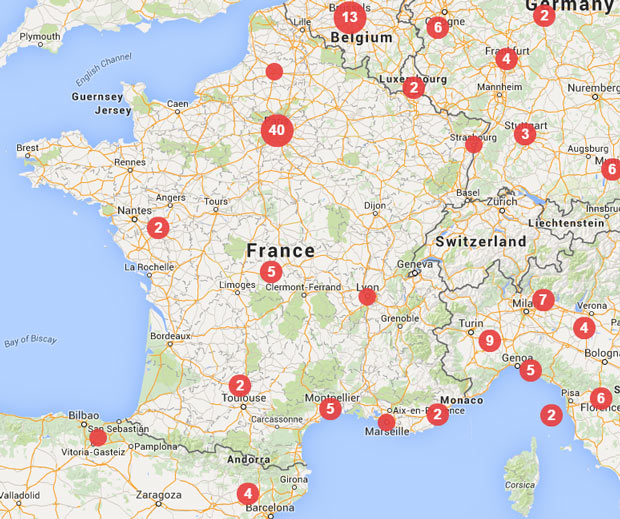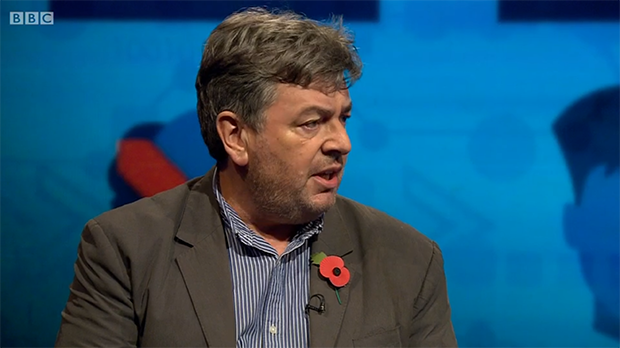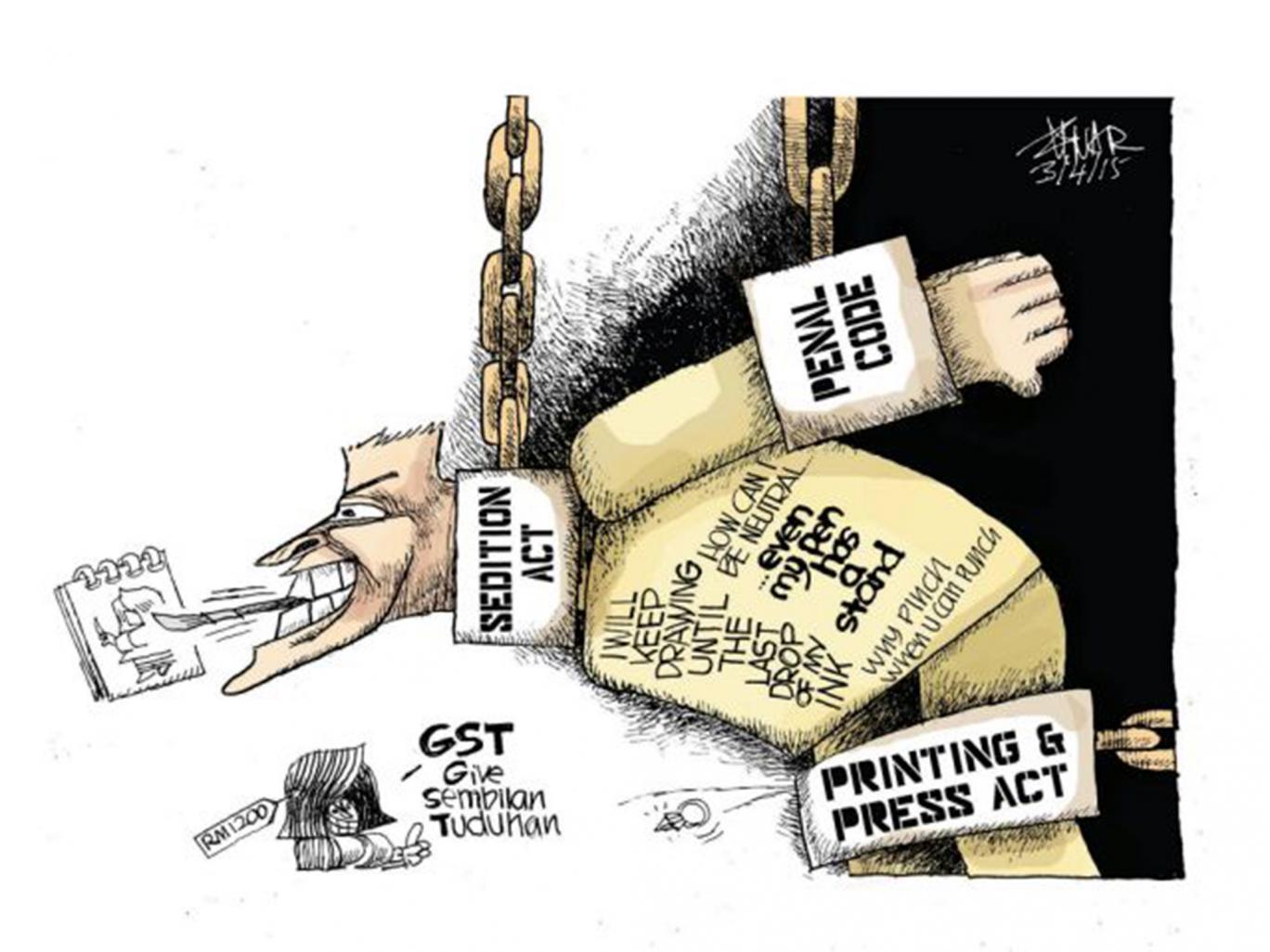2 Nov 2015 | Campaigns, Index Reports, Press Releases, Statements, Turkey, Turkey Reports
The International Press Institute (IPI) released a report on the Joint International Emergency Press Freedom Mission to Turkey undertaken last week by a broad coalition of international free expression and press freedom groups.
The report builds on mission participants’ finding that escalating pressure on media in the period between parliamentary elections in June and repeat polls set for Sunday has significantly impacted journalists’ ability to report on matters of public interest and is likely to “have a significant, negative impact on the ability of voters in Turkey to share and receive necessary information, with a corresponding effect on Turkey’s democracy”.
It does so through 10 brief chapters by mission participants that set forth details on main areas of concern that the participants identified in a joint declaration last week following the close of the mission. The report also contains an evaluation of the degree to which authorities in Turkey have heeded recommendations that IPI set forth six months ago in its report, “Democracy at Risk, IPI Special Report on Turkey, 2015”, concluding that authorities have largely failed to take necessary steps to remedy ongoing threats to media freedom.
“Pressure on media has continued to increase following our mission and we remain extremely concerned about the deteriorating state of press freedom in Turkey and its impact both on the Nov. 1 elections and beyond,” IPI Director of Advocacy and Communications Steven M. Ellis said. “We again call for an immediate end to all efforts to hinder or prevent journalists from giving voters in Turkey the information they need to make an informed decision about their future.”
From Oct. 19 to 21, mission participants met in Istanbul and Ankara with journalists, political representatives and foreign diplomats to demonstrate solidarity with their colleagues in the news media in Turkey and to focus attention in Turkey and abroad on the impact the growing pressure on independent media is likely to have on the Nov. 1 election.
The unprecedented mission brought together representatives from eight leading international press freedom and free expression groups, including IPI, the Committee to Protect Journalists (CPJ), Reporters Without Borders (RSF), the International Federation of Journalists (IFJ), the European Federation of Journalists (EFJ), Article 19, Index on Censorship and the Ethical Journalism Network. Delegates were also joined by members of the Journalists Union of Turkey (TGS) and IPI’s National Committee in Turkey.
The full report can be read here.
2 Nov 2015 | France, Mapping Media Freedom, mobile, News and features

Vincent Bolloré is known for business takeovers. Now 63, he has built an empire in energy, agriculture, transport and logistics.
The billionaire is also a media mogul with expanding interests. His investment group Bolloré, named for its president and CEO, has a majority share in Havas, a leading French advertising and PR group. It owns the cable television channel D8 and the daily newspaper Direct Matin.
Bolloré was appointed as president of Vivendi, the French mass media company, in June 2014. Vivendi owns Canal Plus, a French subscription-based television channel known for its irreverent tone, where Bolloré became chairman last September.
A common theme is emerging in Bolloré’s professional life. As he attains more media companies, there are increasing attacks on editorial content he disapproves of. Last June, Le Canard Enchaîné revealed that Havas, a French multinational advertising and public relations company, which is controlled by the Bolloré group, had cut the advertising budget in Le Monde by €3.2 million in 2014 and €4 million in 2015. This followed the publication of two articles that Bolloré disliked — a personal profile and a report on the activities of the Bolloré group in the Ivory Coast.
“It can be hard to understand whether a media owner is doing something to improve the health of his business or whether he is meddling with editorial content,” says Virginie Marquet, a lawyer who specialises in freedom of the press and co-founder of the collective Informer N’est Pas Un Délit (To Inform Is Not A Crime). “What’s new with Bolloré is the brutality of what is taking place.”
Pierre Siankowski is the former culture editor for Le Grand Journal, a primetime talk show which was broadcast on Canal Plus every weekday and produced by independent production company KM. On 3 July, he found himself out of a job when Bolloré personally decided KM would stop producing the talk show. “The reason given is that the show was too expensive and that Bolloré wanted it to be produced internally,” Siankowski says. “But there’s actually an article in Le Parisien that claims the current cost of production is roughly the same.”
For Siankowski, there may be another reason. He says Renaud Le Van Kim, producer of Le Grand Journal, who is believed to have been made to leave the company he created at Bolloré’s demand, and Rodolphe Belmer, former director of Canal Plus who was fired in July, had both expressed support for Les Guignols De L’info — a satirical news bulletin broadcast on Canal Plus where politicians are played by latex puppets — amid rumours the show was under threat.
The puppets are currently in the closet, having been temporarily taken off the air. The show is due to return in November, but on Bolloré’s orders, it will have more of an international focus, and therefore less coverage of French politics. It may also lose its prime-time slot.
Does Siankowski think the attack against Les Guignols might be politically motivated? Is it a gift from Bolloré to Nicolas Sarkozy, who was a frequent target of the show? “Here is what we know: after he got elected, Sarkozy went on holiday on Bolloré’s yacht,” he says. “We also know Sarkozy hated Les Guignols, and that in a few months’ time the political campaign for the presidential election will start.”
Meanwhile at Canal Plus, there were other worrying signs. In July, it was revealed that a documentary on tax evasion at the Crédit Mutuel bank — one of the main financial partners of the Bolloré group — which was scheduled to be broadcast on Canal Plus in May, had been removed from the programme before it was supposed to air. Geoffrey Livolsi, co-director of the documentary, said Belmer had received a phone call from Bolloré, who requested it be axed following a conversation with Michel Lucas, CEO of Crédit Mutuel.
When asked by staff representatives to explain the decision, Bolloré allegedly replied: “You don’t kill your friends.”
The documentary was finally shown on France 3 in October.
In September,another documentary, this time on the rivalry between Sarkozy and French President Francois Hollande, was taken off Canal Plus grid without explanation, before reappearing a month later.
“What this shows is that we don’t have the tools that are needed to protect press freedom,” Marquet says. “This is why we felt we need to mobilise.”
“What we would like to see are sanctions,” Marquet adds, reminding us of the existence of a resolution voted in 2013 by the European Parliament. It states: “Governments have the primary responsibility of guaranteeing and protecting freedom of the press and the media” and considers “the trend of concentrated media ownership in large conglomerates to be a threat to media freedom and pluralism”.
Bolloré’s attack on the media isn’t confined to those organisations in which he has an influence. He has taken legal action against journalists and publications to defend his business interests. His group has sued, among others, rue89, France Inter, Libération and Bastamag. It also took journalist Benoît Collombat to court over an investigation he had done on the group’s activities in Cameroon.
Asked what he thought of “the Canal Plus spirit” on 12 February on France Inter, Bolloré replied: “It’s a spirit of discovery, of openness, sometimes of excessive derision.” On that same evening, Les Guignols featured Bolloré’s puppet, who was asked to define what “acceptable derision” means. It seems the real life billionaire’s answer to that question has been clear.
Mapping Media Freedom
Click on the bubbles to view reports or double-click to zoom in on specific regions. The full site can be accessed at https://mappingmediafreedom.org/
|
2 Nov 2015 | Academic Freedom, Europe and Central Asia, mobile, News and features, United Kingdom

One of the truly great things about being a student used to be the exposure university life gave you to all sorts of views — absurd and otherwise — and being able to decide for yourself what to make of them. Students were once known for their dedication to free speech and academic freedom, epitomised by the Free Speech Movement at the University of California, Berkeley, 1964-65.
In 2015, students are more renowned for the practice of trying to ban anyone they believe to have dangerous views in order to protect fellow tutees, whether it’s removing the Sun from the shelves or refusing airplay to Robin Thicke’s Blurred Lines. We witnessed this tendency most recently with the petition to ban Germaine Greer from speaking at Cardiff University because of her “misogynistic views towards trans women”.
Index on Censorship chairman David Aaronovitch appeared on BBC Newsnight on Thursday to debate free speech at universities with Toke Dahler, a representative of Leeds University student union. Dahler said that “it’s up to students” to decide where the threat lies, and it is the student union’s responsibility to then “make sure that students feel safe and feel welcome”.
For Aaronovitch, student unions should be places of lively debate and discussion, rather than places where students are “hermetically sealed away behind a form of intellectual rampart within which they can feel safe”. The problem with Dahler’s view, said Aaronovitch, is one of definition. What do we mean by safe? Who exactly feels unsafe? And what do they feel unsafe from?
The full interview is available on BBC iPlayer until 28 November. You can watch it here (starts at 27:40).
31 Oct 2015 | Events, mobile

Cartoon by Zunar
Malaysian cartoonist Zunar, who is facing a trial for his work, is to have four of his most celebrated cartoons exhibited at London’s Cartoon Museum.
“This will be my very first exhibition held in a cartoon museum. At a time when I am facing pressure from the Malaysian government for my works this is genuine encouragement, a tribute I humbly acknowledge and am tremendously grateful for,” said Zunar, who is facing nine charges under the Sedition Act and potentially up to 43 years in prison.
Zunar’s work will be on display at the museum’s cartoon and caricature gallery from 4 Nov 2015, alongside a new exhibition Gillray’s Ghost, marking the 200th anniversary of the death of English caricaturist James Gillray who was also regarded as a provocative figure in his day.
“Zunar is part of a great political cartooning tradition which asks awkward questions of those in power in images which endure in people’s memory,” said Anita O’Brien, director of The Cartoon Museum. “No doubt Gillray would be sympathetic to his cause so it is appropriate that their works are on show at the same time.”
When: From Wednesday, 4 Nov 2015 to January 2016
(Hours: Mon – Sat: 10.30 – 17.30, (inc. Bank Holidays); Sun 12.00 – 17.30)
Where: The Cartoon Museum, 35 Little Russell Street, London WC1A 2HH (map)
Tickets: Admission information



